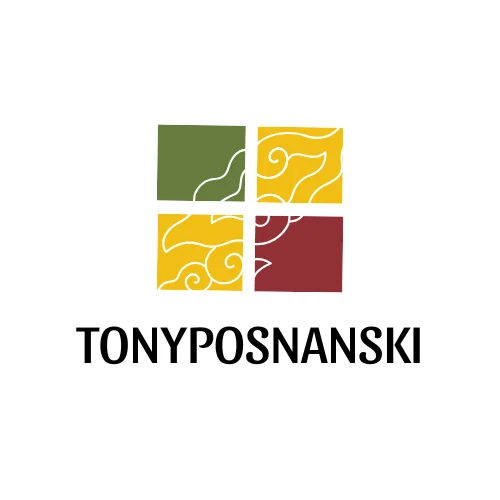Ever felt like your brain’s stuck in neutral while your ambitions are revving in overdrive? Welcome to the world of a growth mindset, where challenges become stepping stones instead of stumbling blocks. In the vibrant realm of Spanish, this concept transforms into a powerful tool for personal and professional development.
Table of Contents
ToggleUnderstanding Growth Mindset
A growth mindset encourages individuals to view challenges as opportunities for personal development. This approach plays a crucial role in effectively learning Spanish.
Definition and Key Concepts
A growth mindset refers to the belief that abilities and intelligence can be developed through dedication and effort. Key concepts include resilience, adaptability, and a willingness to learn. Embracing mistakes leads to deeper understanding and improvement. Individuals with a growth mindset seek feedback and demonstrate a passion for learning. This attitude fosters curiosity, creating a positive learning environment.
Importance of Growth Mindset
Adopting a growth mindset enhances learning opportunities in various domains, including language acquisition. This mindset allows individuals to persist through difficulties in mastering Spanish. Growth-oriented learners tend to achieve greater success since they are more open to trying new strategies. Overcoming obstacles fuels motivation and builds confidence. Focusing on progress rather than perfection encourages continuation in the learning journey. Ultimately, a growth mindset results in enriched experiences and broader life skills.
Growth Mindset in Spanish Context
Growth mindset significantly impacts language learning in Spanish-speaking contexts. This perspective facilitates personal and professional development while navigating the challenges of a new language.
Cultural Perspectives on Learning
Diverse cultural attitudes toward education shape how growth mindset manifests in Spanish-speaking countries. Emphasis on collaboration over competition encourages students to support each other’s learning journeys. Additionally, many cultures value perseverance and view setbacks as essential to growth. Engaging with cultural materials like literature and music can enhance language acquisition, showing how resilience and adaptability lead to deeper connections with the language. Instructors often promote a safe environment where mistakes become valuable learning experiences. This nurturing approach cultivates confidence, enabling learners to express themselves without fear.
Educational Systems and Growth Mindset
Various educational systems in Spanish-speaking regions focus on fostering a growth mindset. Classroom practices emphasize active participation and critical thinking rather than rote memorization. In Spain, for example, educators encourage feedback and reflection, allowing students to evaluate their progress continuously. Latin American countries increasingly adopt innovative teaching methods, integrating technology and collaborative projects to enhance engagement. Programs may include community involvement that connects learners to real-life language use. These strategies help students develop resilience, preparing them for academic and personal challenges. By prioritizing effort over innate ability, educational institutions contribute to cultivating a growth mindset that enriches the learning experience.
Language and Growth Mindset
Language learning requires a growth mindset for effective communication and understanding. Embracing this approach enhances the experience of learning Spanish, promoting both perseverance and adaptability.
Translating Growth Mindset Concepts
Translating growth mindset concepts into Spanish requires an understanding of cultural nuances. Terms like “mentalidad de crecimiento” resonate within educational settings. Learning vocabulary in both languages involves recognizing that terms associated with effort and resilience carry similar weight. For instance, phrases that encourage perseverance often translate directly but may require contextual adaptation to convey the same meaning. Ensuring that individuals grasp these concepts facilitates their ability to apply this mindset during their learning journey.
The Role of Language in Shaping Mindsets
Language plays a crucial role in shaping the growth mindset. The phrases and expressions learners use can influence their perceptions of challenges. Encouraging language that reinforces effort can cultivate resilience in learners. Using positive affirmations in Spanish promotes a supportive atmosphere, helping build confidence among peers. Conversations framed around growth create an environment where collaboration flourishes, which is especially significant in Spanish-speaking communities. The language used in educational contexts can profoundly impact attitudes, making it essential to apply growth-oriented terminology actively.
Practical Applications
Growth mindset principles can significantly enhance language learning, particularly in Spanish. Embracing this mindset opens avenues for personal and professional development.
Strategies for Implementing Growth Mindset
Integrating a growth mindset into language learning involves several effective strategies. Setting achievable goals encourages learners to track progress. Engaging in peer discussions fosters collaboration and support. Emphasizing the value of mistakes helps build resilience. Celebrating small achievements boosts motivation, creating a positive learning environment. Utilizing feedback enhances understanding and adaptation. Incorporating cultural materials, such as films and music, immerses learners in the language, reinforcing both linguistic and cultural connections.
Success Stories and Case Studies
Numerous success stories exemplify the impact of a growth mindset on language acquisition. For instance, many students in Spain have reported improved outcomes thanks to collaborative learning practices. A case study from Latin America highlights how students using innovative teaching methods demonstrated greater resilience in facing challenges. Language immersion programs also show that learners embracing mistakes develop confidence more quickly. Such experiences reveal that adopting a growth mindset not only enhances language skills but also enriches personal growth and cultural understanding.
Embracing a growth mindset is essential for anyone learning Spanish. This approach not only transforms challenges into opportunities but also fosters a deeper connection with the language and culture. By prioritizing effort over innate ability, individuals can enhance their language skills while cultivating resilience and confidence.
Incorporating practical strategies like setting achievable goals and celebrating progress can make a significant difference in the language learning journey. As learners engage with cultural materials and collaborate with peers, they enrich their experiences and develop a more profound understanding of both the language and the communities it represents. Adopting a growth mindset ultimately leads to personal and professional growth, making the journey of learning Spanish a rewarding adventure.






